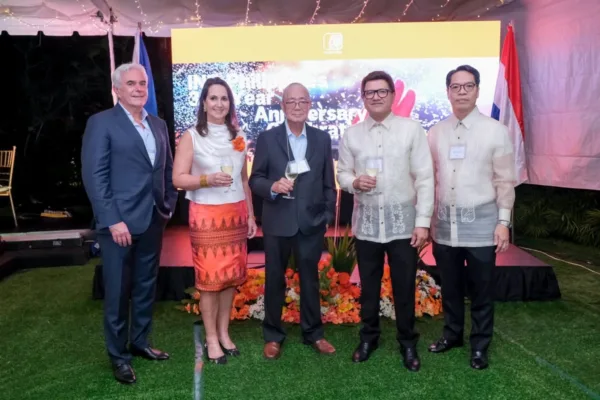While remittances from Overseas Filipino Workers (OFWs) have become a vital lifeline for the Philippine economy, a new study by the Philippine Institute for Development Studies (PIDS) urges policymakers to look beyond remittances and address the complex social and emotional implications of labor migration.

IMAGE CREDIT: https://www.historyextra.com/
Titled “Long-Term Effects of Labor Migration in the Philippines: ‘Napakasakit, Kuya Eddie!’” by PIDS Senior Research Fellows Jose Ramon G. Albert, Aubrey D. Tabuga, and co-authors, the study acknowledges the vital role that OFWs play in the Philippine economy, with their remittances accounting for nearly 10 per cent of GDP.
However, the study reveals that family fragmentation emerges as a stark consequence, with cross-border ties becoming complex and emotionally strained. This vulnerability is further amplified by the lack of systemic financial literacy support available to young OFWs dreaming of early retirement.
“Promoting financial literacy initiatives that teach them to manage their income, savings, and investments is crucial to ease their transition back into the Philippine labor market upon retirement or contract termination,” the authors suggest.
The authors also acknowledged that the government has initiated different financial literacy programs for OFWs such as the Bangko Sentral ng Pilipinas’ Pinansyal na Talino at Kaalaman or PiTaKa, yet they saw the need to communicate it more systematically.
Beyond financial literacy, the study stresses comprehensive skills development tailored to returning OFWs’ needs. Relevant digital and soft skills expand career options and empower them in the evolving job market.
However, while skills development is crucial, the study also warns of a wider concern about overreliance on remittances which can create dependency, discourage local labor participation, and even fuel inequality.
This is particularly concerning given the high number of college-educated OFWs across all levels, even in service jobs, compared to the lower educational attainment of their domestic counterparts. This suggests a potential “brain drain” hindering the Philippines’ workforce development. Many skilled workers who have college degrees leave to work abroad and get better-paying jobs even in less specialized fields.
“It is crucial to create more job opportunities within the Philippines and foster domestic development, investing in local skills, and strengthening support systems for both OFWs and their families to mitigate the potential negative consequences of overreliance,” urged the authors.
Safeguarding the rights and well-being of OFWs remains paramount. According to the authors, the establishment of the Department of Migrant Workers is a positive step, but continuous reinforcement of legal frameworks is essential. Addressing wage theft, contract breaches, and workplace exploitation remains a priority.
Additionally, extending access to social protection programs and prioritizing mental health support for both OFWs and their families is essential.
“The Philippines has become a major source of labor migration,” the authors note, highlighting the significant shift in Philippine society due to this phenomenon. “While OFWs are celebrated as modern heroes for their economic contributions, we need to consider the broader implications of their sacrifices,” they concluded.
For the full study, check this out: https://pids.gov.ph/publication/discussion-papers/long-term-effects-of-labor-migration-in-the-philippines-napakasakit-kuya-eddie.







